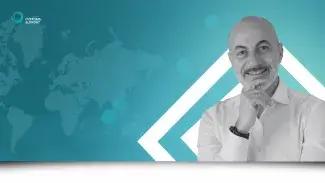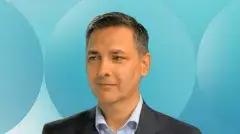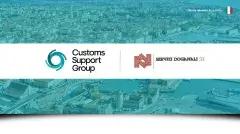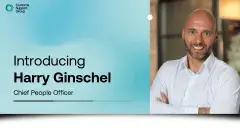In this edition, we are excited to present Gianluca Schiavina, who is our IT Director in Italy.
Join us as Gianluca shares his experience and insights in this article.
Who are you?
I am Gianluca Schiavina, 50 years old, and I have worked with the team here since 1997 – originally with Sernav srl before we were acquired by Customs Support in 2021.
I started my career in export declarations, and moved into developing software as this is my passion. I became the head of the IT department here and became the IT director for Italy after we joined the Customs Support Group.
What does an IT director do?
I’m responsible for our IT infrastructure: the physical setup, the software, any development, and resolving any issues that we get.
We have several acquisitions in Italy, so one of the things that I need to monitor is how the different software in each office is working and where they are lacking. We currently have about 10 different software spread throughout the organisation here in Italy, and it is our goal to create a single platform for Customs Support Italy as a whole.
One of the things that is different about my role compared to a lot of IT directors is that I also develop software. I don’t just oversee the infrastructure and installation. We have a great nine-person team here, including me, which develops software for our customs clearances, digital customs integrations, and bespoke projects such as connections with customs warehouses.
What is your typical working day like?
My team and I are in constant communication about our projects and any issues that we have ongoing, and we are also in close collaboration with our operational teams.
Therefore, I normally have a lot of Teams discussions in the morning where we provide updates, ask for information, and plan how we are going to solve a challenge together.
I also send reports to our group IT department and work with our Director of Innovation Bardo Schütz on new initiatives.
You've been in customs IT since 1997. What are some of the big changes that you've seen in those 26 years?
It’s been crazy seeing the growth of the internet and what we can do with IT now.
The biggest change has been the introduction of data transmission between agents and customs. When I started, we had to take papers to the customs office and meet with a customs officer to sign off the paperwork. Now, we send that data instantly.
It has its drawbacks, such as when there are problems with transmitting data because of a new system or an error with the infrastructure, but overall this is big progress.
What are some of the benefits you’ve seen with joining Customs Support as a Europe-wide digital customs network, opposed to just within Italy?
We were already very digital before the acquisition here, especially for Italy. However, it’s brilliant to have such a great network of colleagues who have also faced these developments.
Our counterparts in other countries have also approached document reading, data mapping solutions such as end-to-end customs clearances, and integrations with warehouse management systems and bonded warehouses. Being part of the group allows us to leverage this cross-country experience and learn from each other, as well as discuss our approaches to new challenges.
One thing that is particularly important for us is that we have the volume of data across multiple countries, so we can test and innovate at a fast pace. When it comes to artificial intelligence and customs, this is key and it makes what we are doing very unique and exciting.
What are your thoughts on AI?
I don’t think that AI can completely replace a person’s work, but it is very useful to obtain information and reduce the amount of tedious work that a declarant has to do. If they have a 60% reduction in workload, then the quality of their work goes up mistakes are less likely.
What do you like to do outside of work, and how does that influence your work skills?
I like to develop software outside of my work as well, and also like video games. Travelling is another hobby of mine.
Playing video games is good for developing quick decision making and solving problems, depending on the game you are playing. Of course, sometimes you just want to shoot somebody on COD [Call of Duty].
You work with a Europe-wide network. If you were to visit an office location of Customs Support, which country would you want to see first and why?
I’d like to visit our headquarters in Rotterdam and see where it all works from. Hopefully, we’ll open an office in Japan one day and I can visit there as it’s an amazing place.














